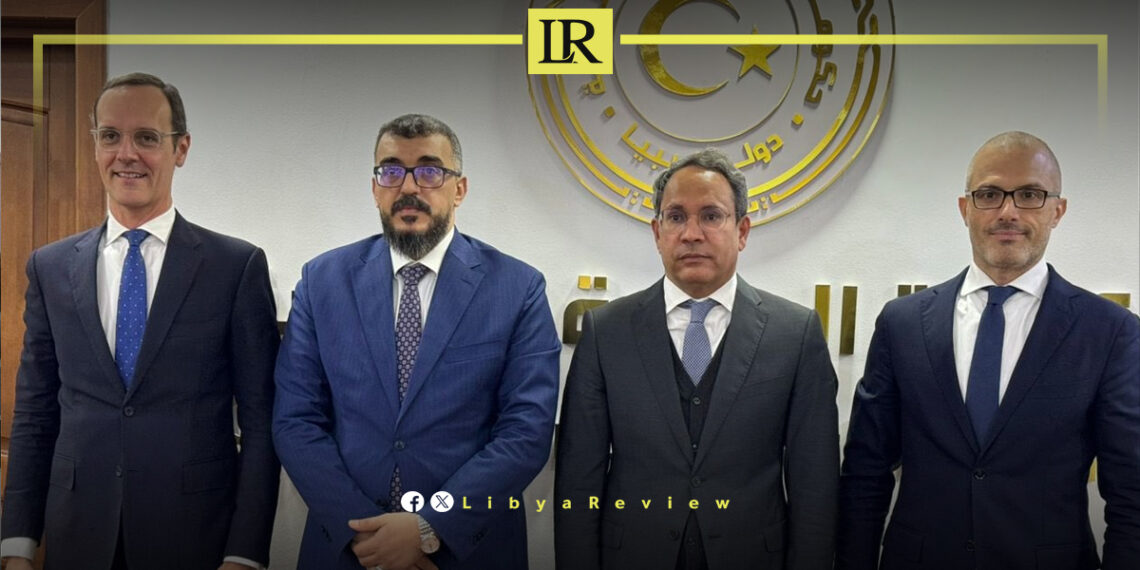The European Union (EU) Ambassador to Libya, Nicolas Orlando, announced the launch of consultations with Libya’s Government of National Unity to define the framework for EU cooperation with Libya for the 2025-2027 period.
This announcement followed a highly productive meeting between Ambassador Orlando and Libyan officials, including the Minister of State for Cabinet Affairs, Adel Jumaa, and the Minister of Local Governance, Badr Al-Din Al-Toumi.
According to a post by the EU Ambassador on the social media platform X (formerly Twitter), discussions centered on key areas such as governance and decentralization, economic diversification, digitization, and preparations for energy and climate challenges.
Broad Cooperation Agenda
The cooperation framework extends beyond governance and development. It also includes significant security-related initiatives. Earlier discussions between the Director of the International Relations and Cooperation Department at Libya’s Ministry of Interior, Major General Nour Al-Din Abu Jarida, and the Head of the EU Integrated Border Assistance Mission (EUBAM), focused on enhancing joint efforts. These efforts particularly emphasize training programs and improving the performance of the Security Planning Directorate.
The Libya-EU cooperation for 2025-2027 will focus on:
Governance and Decentralization: Supporting Libya’s efforts to strengthen local governance and improve public administration.
Economic Diversification and Digital Transformation: Promoting alternatives to oil dependency and advancing Libya’s digital infrastructure.
Energy and Climate Readiness: Addressing energy security and implementing measures to mitigate climate change impacts.
Security Collaboration: Enhancing border management and strengthening institutional capacities through training and technical support.
This collaboration underscores the EU’s commitment to supporting Libya’s transition towards stability, economic diversification, and sustainable development.


